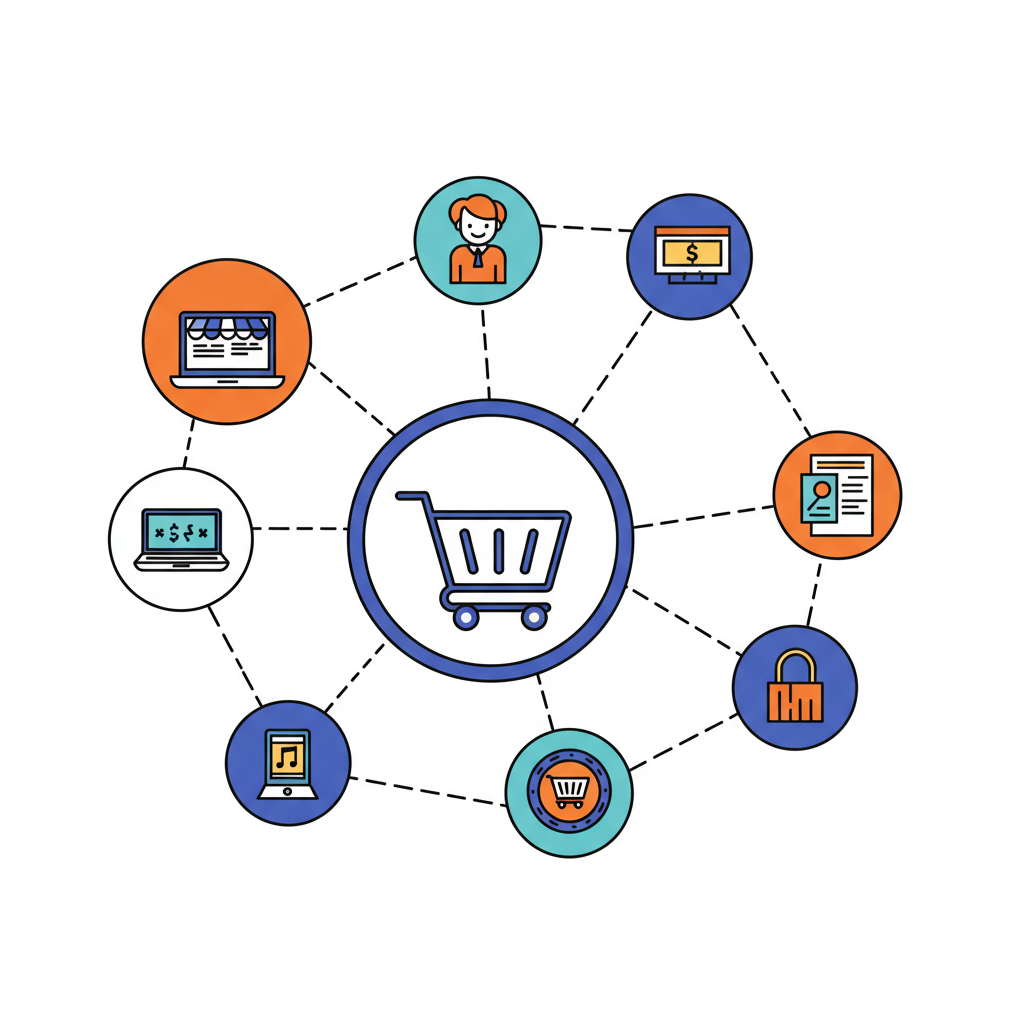Exploring Decentralized Governance and Community Ownership for E-commerce Entrepreneurs
As a merchant navigating the ever-evolving landscape of e-commerce, I’m constantly looking for innovations that can empower our businesses. We rely heavily on platforms like Shopify, which have revolutionized how we sell online.
But what if there was a way for us, the merchants, to have a more direct say in the platform’s future? What if we could collectively own a piece of the ecosystem we help build?
This isn’t just a futuristic fantasy; it’s a concept rapidly gaining traction in the world of web3: Decentralized Autonomous Organizations, or DAOs.
Today, I want to explore with you how DAOs could fundamentally reshape our relationship with Shopify, moving towards a model of true community ownership and decentralized governance.
First, let’s demystify DAOs. Imagine a company or an organization that isn’t controlled by a single CEO or a board of directors in the traditional sense.
Instead, it’s governed by rules encoded on a blockchain, and decisions are made collectively by its members through voting.
These members typically hold special tokens, which grant them voting rights and often a share in the organization’s success. It’s like a digital co-op, but with transparent, immutable rules.
Think of it as a community-owned and operated entity, where every stakeholder has a voice, proportional to their contribution or token holdings.
Now, why is this relevant to us, the Shopify merchants? Currently, Shopify operates as a centralized entity. They make the decisions about features, pricing, policies, and platform direction.
While they often listen to feedback, the ultimate power rests with them. A DAO model could shift this dynamic significantly.
Imagine a “Shopify Merchant DAO” where we, the merchants, could vote on proposed changes to transaction fees, new app store policies, or even prioritize which new features get developed.
This isn’t about replacing Shopify entirely, but rather about creating a layer of community governance and ownership that works alongside or even integrates with the existing platform.
How would this governance work? Members of the DAO, perhaps holding “Shopify Merchant Tokens,” could submit proposals.
These proposals might range from advocating for specific API improvements to suggesting new marketing tools or even debating the terms of service.
Other token holders would then vote on these proposals. If a proposal passes with sufficient consensus, the DAO would then work to implement it, or lobby Shopify directly with the collective weight of its members.
This gives us a collective bargaining power that individual merchants simply don’t possess. It’s about having a seat at the table, not just sending in a suggestion box comment.
Beyond governance, DAOs introduce the concept of community ownership. What if a portion of Shopify’s success, or a new ecosystem built around it, was shared directly with its most active participants?
This could mean receiving a share of transaction fees, or earning tokens for contributing to the community, which could then be used for voting or even traded.
Imagine a scenario where the more you sell on Shopify, or the more you contribute to a merchant forum, the more “ownership” tokens you accrue.
This creates a powerful incentive alignment: the better the platform performs, the more value accrues to its merchant owners. It transforms us from mere users into active stakeholders.
Let’s get practical. How could a Shopify DAO directly benefit your business?
**Shared Marketing Initiatives:** Merchants could pool resources through the DAO to fund collective marketing campaigns, reaching a broader audience than any single store could afford.
**Product Development & App Store:** The DAO could fund the development of open-source apps or features that benefit all merchants, or even curate a community-vetted app store.
**Dispute Resolution:** A DAO could establish a transparent, community-driven dispute resolution system for merchant-to-merchant or merchant-to-customer issues, adding another layer of trust.
**Collective Purchasing Power:** Imagine negotiating better shipping rates or payment processing fees as a collective, leveraging the combined volume of thousands of merchants.
The advantages are clear. You gain a voice in the platform’s direction, potentially reducing platform risk and ensuring decisions align with merchant interests.
You could tap into new revenue streams through token ownership and participate in a more robust, self-sustaining ecosystem.
Customer loyalty could also be enhanced if customers feel they are part of a community-owned platform, fostering greater trust and engagement.
Of course, this vision isn’t without its hurdles. The legal framework for DAOs is still evolving, and integrating such a system with a large, established company like Shopify would be complex.
There are also questions of technical complexity, ensuring fair voting mechanisms, and preventing malicious actors from gaining undue influence.
Education would be paramount; many merchants are not yet familiar with blockchain or DAO concepts.
Despite these challenges, I believe the potential is immense. A future where Shopify merchants are not just users, but active co-creators and owners, is a powerful one.
It promises a more equitable, transparent, and resilient e-commerce ecosystem for everyone involved.
It’s about building a platform that truly serves its community, because the community *is* the platform.
What do you think about this article? I’m genuinely curious to hear your thoughts on this concept. Do you see DAOs as a viable path for the future of e-commerce platforms like Shopify?
The journey towards a DAO-powered Shopify might be long, but the conversation has begun. As merchants, understanding and engaging with these emerging technologies is crucial for shaping our collective future.






